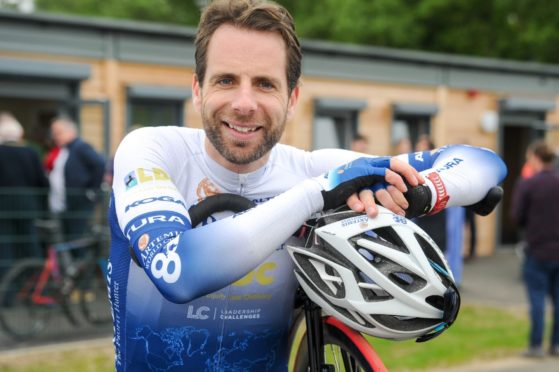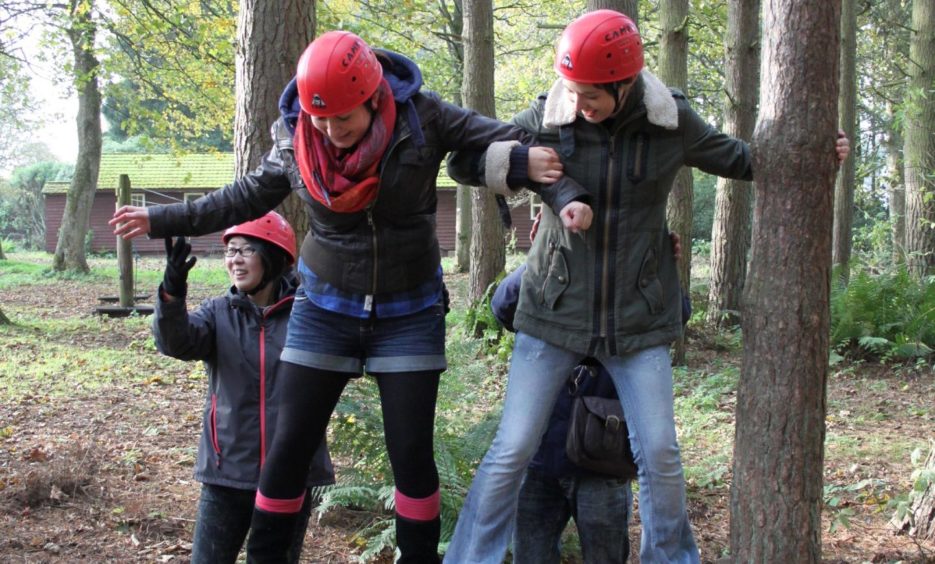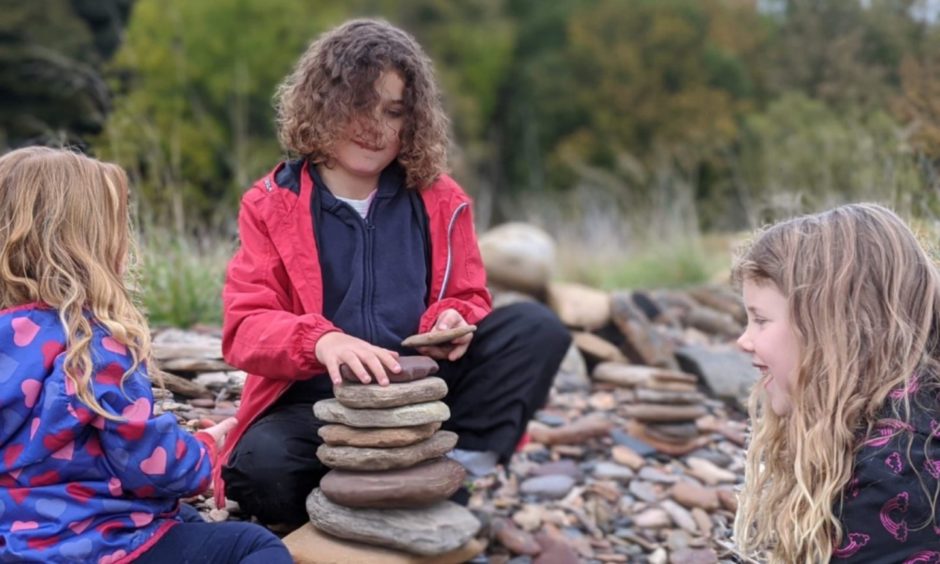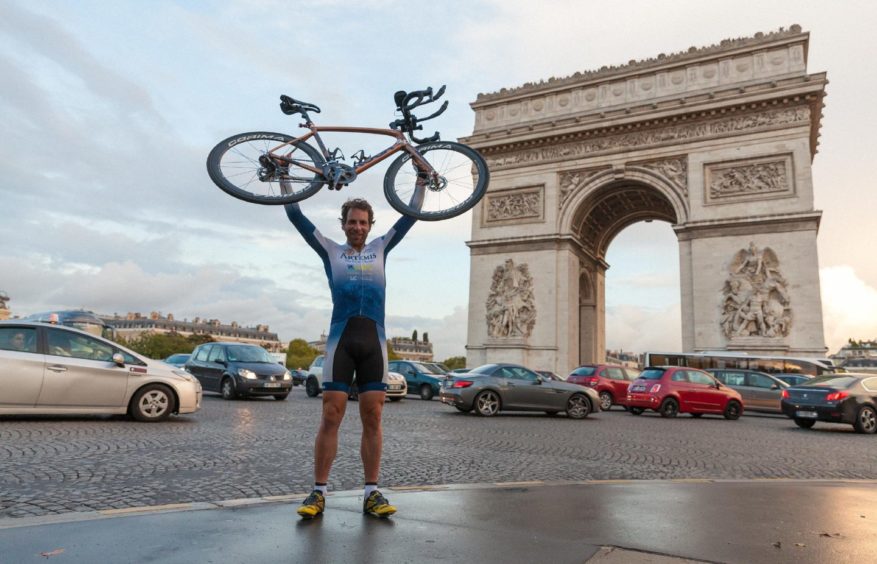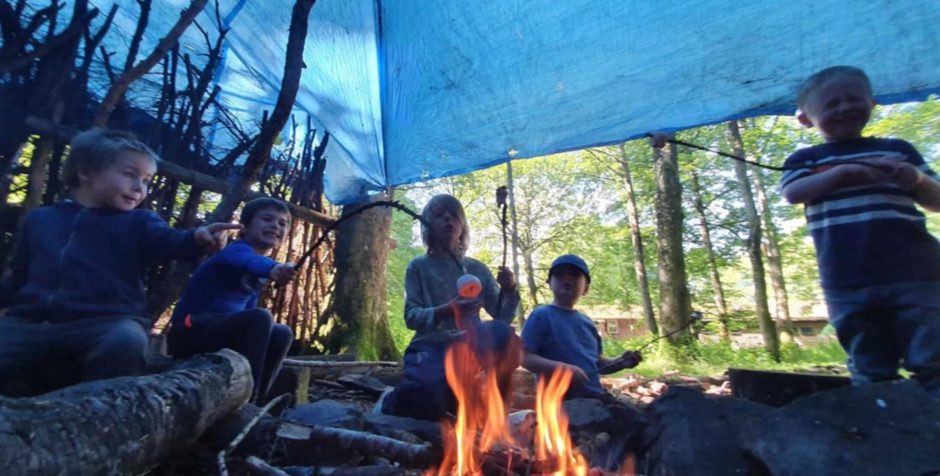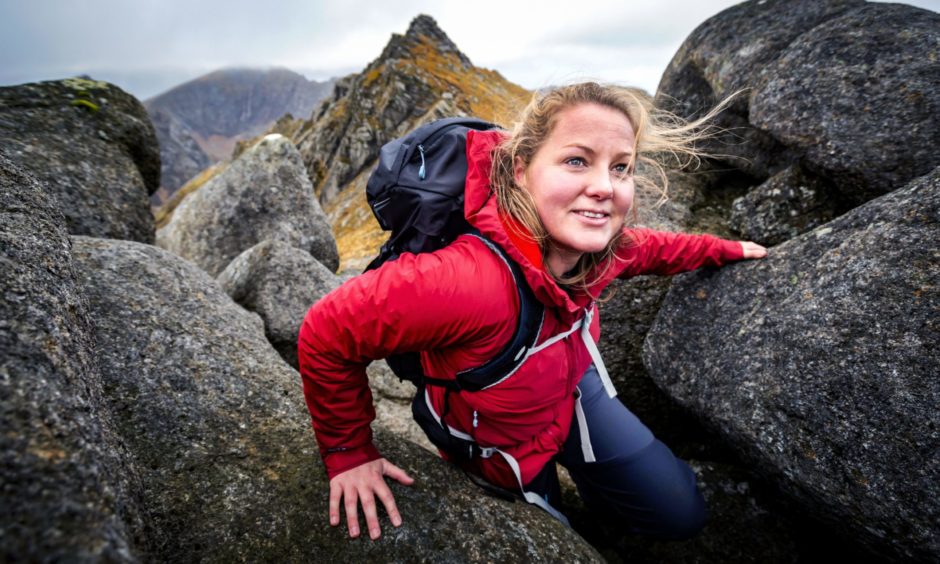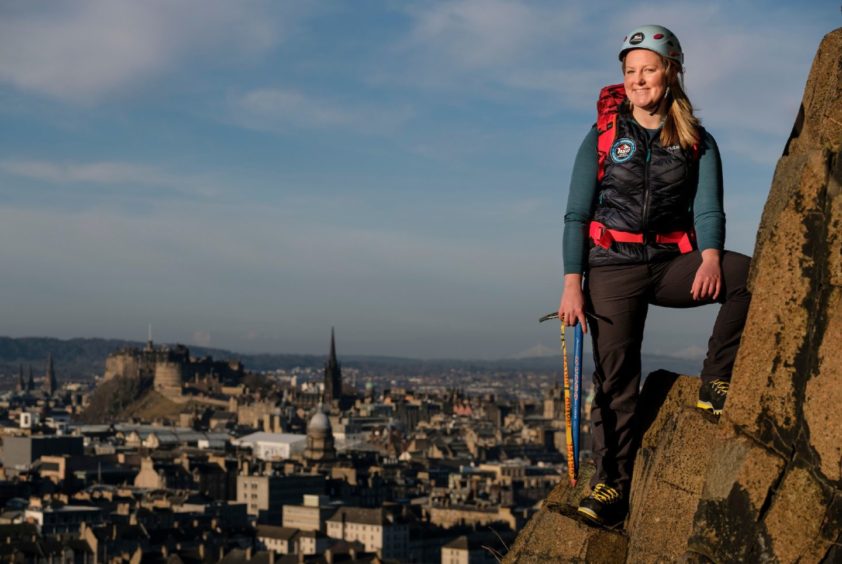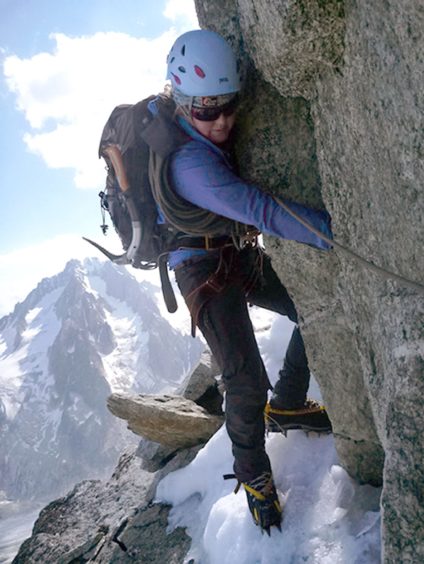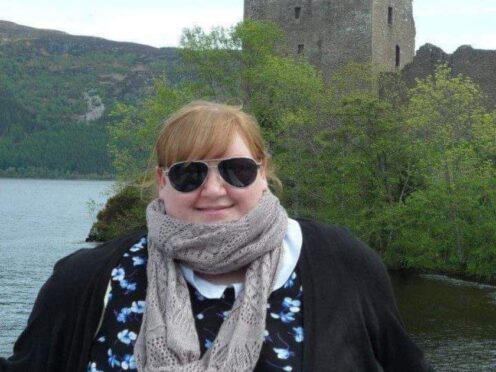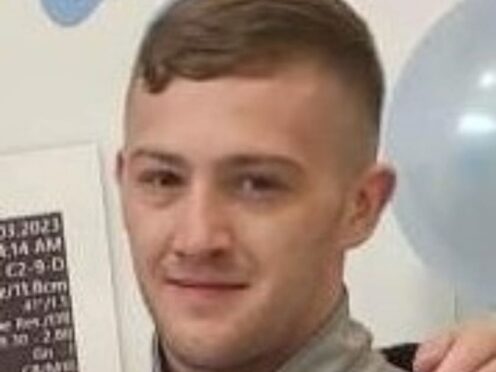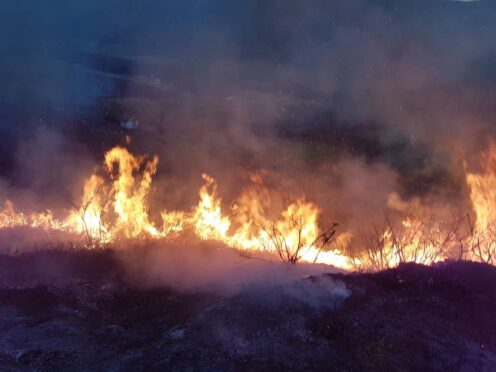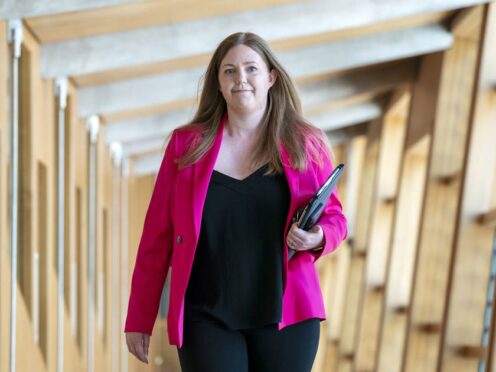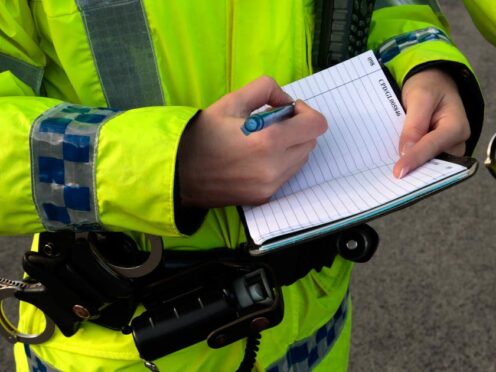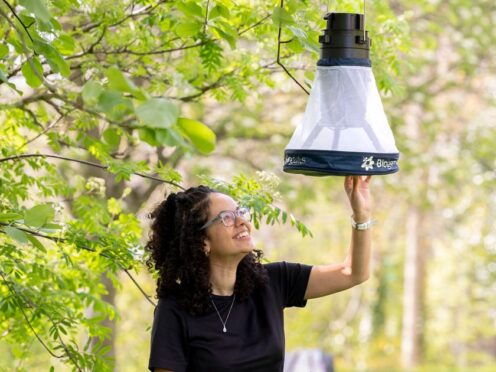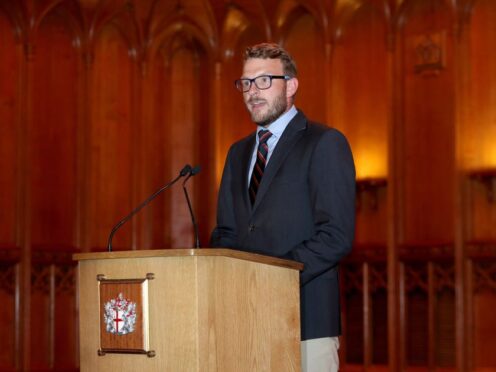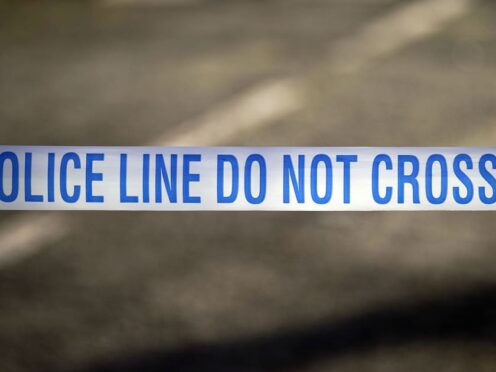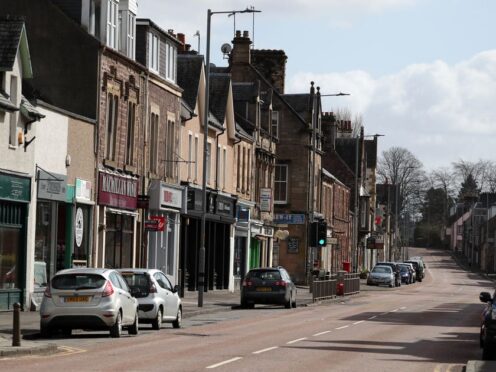Michael Alexander speaks to Scottish adventurers Mark Beaumont and Mollie Hughes who are supporting a cross-party campaign to safeguard residential outdoor education centres from closure.
MARK BEAUMONT
Thinking back to when he grew up on a farm near Blairgowrie, record breaking round the world cyclist and adventurer Mark Beaumont reckons he had something of a “wild man” existence during childhood.
Home schooled and “feral” until the age of 12, the former Dundee High School pupil knew how to hunt rabbits and make his own shoes out of rabbit skins.
Every morning he’d have to get up to help milk 60 goats and collect eggs from 200 hens.
While he knows now he probably took those childhood experiences for granted, he’s in no doubt that the physical and mental competences he gained from getting muddy in the great outdoors and learning how to work in teams were “utterly formative” in terms of the confidence and resilience he’s dug into later in life.
“My entire childhood was an outdoor education course!” he says.
But the now 38-year-old Edinburgh-based father-of-two young girls is concerned that many young people – especially those growing up in an urban environment – don’t have that connection to nature, and don’t have the chance to develop the competences that come from access to the great outdoors.
For years, he’s volunteered with The Outward Bound Trust to help give young people opportunities to develop hands-on skills in outdoor settings.
However, Mark is very concerned that due to the contraction of opportunities caused by the Covid-19 pandemic, youngsters’ mental health is being increasingly affected.
He’s concerned that “more than half” of residential outdoor education centres that have been forced to close during lockdown face permanent closure unless they are financially supported.
It’s for this reason that he has joined politicians from across the political spectrum to launch a new vision paper ‘Thriving Through Residential Outdoor Education’ – as previewed in The Courier.
It seeks to guarantee that all young people in Scotland have the chance to benefit from residential outdoor education experiences.
Evidence shows that learning in the outdoors, particularly when including residential and adventurous experiences, is beneficial for mental health and wellbeing, reducing the attainment gap, and developing a connection to and care for the natural environment.
“You talk to so many people in their 30s, 40s, 50s, they talk about the residential outdoor centre experiences they had as youngsters back in the day and they are experiences that last a lifetime,” says Mark, who was a member of 2519 Blairgowrie Squadron ATC as a teenager.
“These centres – especially since the Second World War – have just been a part of the British/Scottish DNA for open access, people from all backgrounds, to be able to get into the outdoors and learn really important skill sets.
“But because outdoor centres are not the frontline emergency that’s related to the global pandemic, I worry, and I guess everyone in this space worries, that outward bound centres and outdoor education is going to slowly and quietly die over this period and we are going to wake up in a few years’ time and wonder where all these amazing resources and spaces have gone.
“You can already see the number of centres up for sale. They are all in financial dire straits.
“Most of them are going to go this year and next if there is not some sort of a campaign around maintaining them.”
The vision
Written by The Outward Bound Trust, Scottish Outdoor Education Centres, Scouts Scotland, Actual Reality Trust/Ardentinny Outdoor Centre, Ardroy Outdoor Education Centre, Abernethy Trust, Ocean Youth Trust and the Field Studies Council, and supported by Children in Scotland, the Association of Head teachers and Deputies, Play Scotland, Youthlink Scotland, RYA Scotland, The Awards Network and Ramblers Scotland, Mark is pleased that so many organisations with different cultures and histories are now working together to support the vision.
While the Scottish Government’s bail out funding last year had been “welcome and helpful”, what he wants to see next is a “war chest” outdoor centres can use as a resource when times are hard.
Young people deserve credit, he says, for often being more adaptable to unknown difficult situations than adults.
Yet a recent Lockdown Lowdown report by Youthlink showed that around two fifths of young people surveyed were concerned about their mental health and wellbeing.
Mark says there’s no doubt these are difficult times with exams and education disrupted, and it further emphasises to him that youngsters need to have that “quiet confidence” to deal with setbacks and build the resilience to pull through.
“Life is not a meritocracy – you don’t make success of your own life by being book smart,” says Mark, who first came to prominence in 2008 when he broke the world record for a circumnavigational bike tour of the world.
“If you are lucky enough to be clever then good on you, but the real thing that sets people apart and makes them apart and brings them happiness and wellbeing is a sense of choice.
“Being their own boss, making their own mind up – that independence of mind, being in the driving seat and developing their own passions. That is at the heart of mental well-being.
“If you grow up in the outdoors and you understand the consequences of your actions, you understand risk. You know what it’s like to get muddy and get things wrong.
“But it’s very difficult to learn these things in the traditional classroom. That’s why we need these additional experiences guaranteed to all.”
MOLLIE HUGHES
Scouts Scotland president Mollie Hughes, 30, who became the youngest woman to climb both sides of Mount Everest (2012 and 2017) and the youngest woman to ski solo to the South Pole in 2020, is also backing the campaign.
In her role with Scouts Scotland – becoming the first woman to hold the voluntary president position, as recently featured in The Courier – she says it was “really nice” to be asked to support them in this initiative. As soon as she learned more about it, it was something she “totally believes in”.
“Outdoor education for young people has disappeared this year with the Covid-19 pandemic,” she says.
“The benefits young people get from it are second to none. You can’t get that from any other activity. It absolutely has my support.
“I remember as a young person growing up in Devon we had various opportunities to do outdoor residential stuff – Duke of Edinburgh Award, and spent a lot of time on Dartmoor.
“I think that kind of escape from home was great. You get to spread your wings for the first time, you get to make much better friendships, and you just kind of gained confidence doing all the sort of outdoor activities that we did. Hiking, abseiling that sort of thing – I totally ate it up as a young person.”
Mollie has taken her resilience to extremes through her amazing successful challenges.
In Antarctica, for example, she spent 58 days and 650 hours skiing alone in whiteouts, storm-force winds and temperatures hitting minus 45C.
However, resilience learned through outdoor activities is applicable to all walks of life.
It’s something she regularly talks about in her role as a motivational speaker to young people.
“The only way to actually create resilience is to push yourself and step out of your comfort zone,” she says.
“When you do that that’s the kind of space that you build resilience in. Resilience is a characteristic that we all need going forward.
“The outdoors especially through the outdoors and outdoor centres – because they do it in such a safe way – kids can have that outdoor challenge but also be completely safe.”
Lasting impact
After almost a year of Covid restrictions and the impact on education, Mollie is concerned about the lasting impact on young people.
It’s hard for adults, but she thinks it’s “so much harder for young people”.
She adds: “They are at that key kind of stage where they are still developing, they are still learning about the world.
“Indoors is really not good for them. I think this outdoor centres vision is really needed.
“If every kid in Scotland as soon as we get out of lockdown could go out on some amazing residential course in an outdoor centre, it would be such a great thing for them.
“At the moment I’m not sure if every school and young person has that opportunity to get away.
“This is about getting every single young person no matter what background, no matter what school they come from to get an opportunity to actually get away on a residential trip.
“It’s definitely got cross party support. It’s about turning that support into actual commitment from government. They know it’s important but it’s about prioritising. Everyone is concerned about mental health of young people. This is a great way of combating it and people need to prioritise it.”
